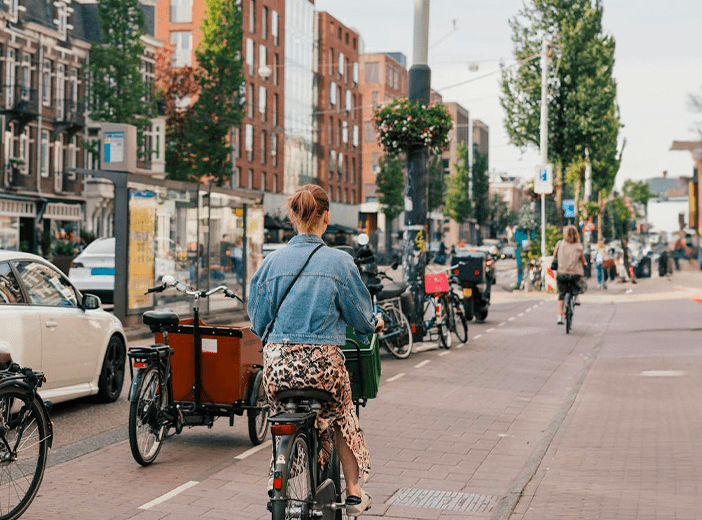Glossary
Smart Parking
Smart parking uses digital technologies to optimize vehicle parking, saving time, reducing pollution and improving the driving experience.
Everyone has wasted time (and gasoline) driving around in circles looking for an available parking space, or forgotten where their car is actually parked. These are the problems that smart (or intelligent) parking aims to solve.
What is smart parking?
The concept of smart parking is associated with smart cities. It involves using digital technologies to optimize vehicle parking, benefiting drivers and the wider city environment.
In concrete terms, smart parking lots use digital data from sensors to show:
- the number of available spaces in particular parking lots
- how long vehicles have been parked
- when parking time limits have been exceeded
- vehicle license plates in particular parking lots
To collect this data, parking lots are equipped with sensors and cameras connected to software that processes the usable information. Various intelligent technologies are then used, such as optical counting to know the number of available spaces, vehicle guidance to allow motorists to move quickly to empty spaces or license plate reading to identify the vehicles present. By linking this data to wider smart city apps (and in the future to smart cars), drivers can be automatically guided to free parking spaces.
What are the advantages of smart parking?
The development of smart parking benefits both organizations and drivers:
Local authorities
Local authorities benefit in multiple ways:
- Improved urban parking: sensors detect overused or underused parking lots. This information can be used to plan and create new infrastructure or to modify existing facilities to increase usage.
- Improved environment: looking for a parking space for hours is not only frustrating for drivers. It is also bad for the environment, increasing emissions and reducing air quality. It can contribute to the emission of several hundred tons of CO2 per year. Essentially as citizens will be able to find spaces more quickly, they will pollute less.
- Increased visitor numbers: Many people avoid cities due to issues with parking. Making the process seamless encourages tourists and return visitors, keeping cities vibrant and helping the local economy.
Parking managers
Real-time data from intelligent parking facilities provides a decision-making tool for parking managers:
- Better management to continuously optimize occupancy rates, such as by sending people to specific parking lots.
- Optimal maintenance of parking lots through connected sensors that can identify faults or equipment that needs repair.
- Improved profitability thanks to the simplified identification of empty spaces, which ensures a maximum fill rate.
- Citizens
Smart parking solutions represent a real time-saver for users, which contributes to citizen satisfaction and reduces their use of gasoline as they are not driving around searching for a space. It reduced frustration and road rage.
Intelligent parking: use cases
Just like smart cities, new services are constantly being developed for smart parking. Here are some examples from among Opendatasoft’s customers:
- Saemes, a smart mobility operator in the Paris region, has opened access to its parking data. The objective is to allow drivers to easily find available parking spaces. Saemes uses Opendatasoft’s portal to share information, which is then reused by other public or private players to create new services.
- The cities of Bordeaux and Orleans in France both allow their citizens to find parking spaces, with availability updated in real-time.
- The city of Liège in Belgium provides an interactive map that allows users to consult available parking lots and short-term parking spaces.
Learn more

Blog
How smaller cities can partner to accelerate data sharing
Every municipality and its stakeholders will benefit from effectively sharing data. However smaller, resource-constrained cities with limited budgets can find it difficult to start their data sharing programs - we look at how partnering with other local organizations can help them begin.

Blog
Accelerating public sector data sharing – best practice from Australia
Data sharing enables public sector organizations to increase accountability, boost efficiency and meet changing stakeholder needs. Our blog shares use cases from Australia to inspire cities and municipalities around the world

